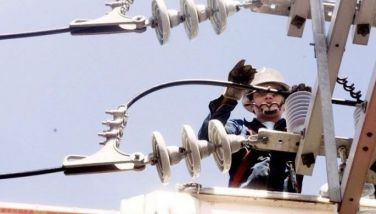Government and business

Sociologist Randy David made an interesting comment in his column about the RFID problems. He expressed disappointment that the private sector operator of the expressway seems to have the attitude and efficiency of the government entity it replaced.
That hurts. It is easy to dismiss Randy’s sentiments as coming from someone who is not convinced about private business being in public utilities. But it was good for Randy to bring up the principal justification advanced for privatizing public utilities: efficiency and professional management.
Our main expressways were under government management for almost 20 years, with very little maintenance and investment to meet increasing traffic volume. I was with the Lopez Group that undertook the rehabilitation of NLEX and we eagerly showed why we could do better than PNCC.
Construction was done under international rules with an Australian construction firm. Quality control was so tough the Australians were forced to re-do some 11 kilometers of finished work because the international quality control experts said so. We didn’t settle for puede na.
I lost track of what has been going on after the Lopezes sold out to Metro Pacific. But some of our key tollway officials joined them. Perhaps they were too focused on expansion and didn’t give the current operations as much attention. The important thing is they promise to do so now.
As a rule, private sector management tops the government any time. The water concessions are a good example. Folks today do not remember when getting water was a big problem in our homes. Not only did the private companies vastly improve water availability, rates even went down.
But the private companies did not control everything as originally planned. Government insisted it must control the supply of water. As expected, the government did nothing to increase supply to meet increased population needs.
The private concessionaires cannot distribute what they do not have. There are issues about rates these days. But when the concessions were awarded, water availability from our faucets was the main objective.
The Mactan Cebu International Airport is another example of a private consortium producing a miracle to the point that international awards are being won, right and left. The same guys want to produce a miracle at NAIA, but vested interests protected by some politicians don’t want that to happen.
Of course, there are also cases when the private sector has utterly failed… for example, MRT 3. That’s how not to do public-private partnership. Perhaps, the Ramos administration was blinded by the big names in the consortium and did not make sure the contract works for the public good.
But the Ramos years were early days of PPP and we have learned a lot since that bad lesson. Government’s PPP Center has professionally vetted many proposals for public-private partnerships. They are not always listened to and that’s when problems happen.
Indeed, we had really good government officials who developed the PPP template and are now recognized as international experts. A good example is Cosette Canilao who once headed the PPP Center and became a consultant to various foreign governments on how to do PPP. She later joined the Aboitiz Group to head its infrastructure unit.
To make these partnerships work, the government must know its role as regulator. While it cannot meddle in daily operations, the government must know enough of the business to make sure the objectives of the partnership are attained.
For example, the Toll Regulatory Board should have acted seven years ago on the traffic problem Mayor Rex Gatchalian complained about. TRB should have known that the sensors at NLEX only have three watts of power compared to eight watts for San Miguel. No wonder they have more failures in reading RFID stickers, resulting in a traffic pile up.
Indeed, it was only after a public uproar that the TRB started to do its work, as indicated in a press release:
“One measure is to remove the ‘emergency’ signages and convert these toll plaza lanes to either ‘Cash’ or ‘RFID’ lanes…
“Additionally, the barriers at the toll plazas should be removed during peak/rush hours to allow fast entry and movement of vehicles. Further study on the removal of barriers was also recommended. RFID and Cash lanes should be positioned in clusters to avoid confusion.
“To reduce queuing, RFID installation sites at toll plazas should be removed. Stickering and reloading will be relocated in gasoline stations, malls, groceries, and other places frequented by motorists…
“The toll operator has been instructed to consider (why consider only? should be ordered) increasing RFID sensor wattage from three to 10 watts within 15 days from Dec. 9…
“To help resolve general issues, Secretary Art Tugade further directed TRB to also relay the above mentioned recommended solutions to other toll operators, as well as the following:
“1. Enhance traffic management and customer service assistance at toll plazas and approaches.
“2. Intensify campaign and implementation of replacement of worn-out tags.
“3. Expedite system’s hardware and software upgrading, including data transmission and procurement of good quality RFID stickers.
“ And, 4. Continue and enhance the campaign to inform motorists to maintain sufficient load to avoid loading at the toll plazas.”
These are all very good ideas that the TRB should have implemented before the Nov. 1 deadline was made… or because they already knew they have implementation problems, before the Dec. 1 deadline. Government always waits for a crisis before it acts.
As a rule, the government makes a mess of it when it dabbles in business. That happened in Philippine Airlines and Philippine National Bank before these companies were privatized.
The National Power Corp. is another good example of the government wasting the people’s money and failing to deliver too. There are other examples.
Government must make sure public-private partnerships work. Stick to good regulation and make sure the private sector does not abuse its animal instincts or get greedy. But let the private sector benefit from the fruits of their labor and investments.
Boo Chanco’s e-mail address is [email protected]. Follow him on Twitter @boochanco
- Latest
- Trending






























